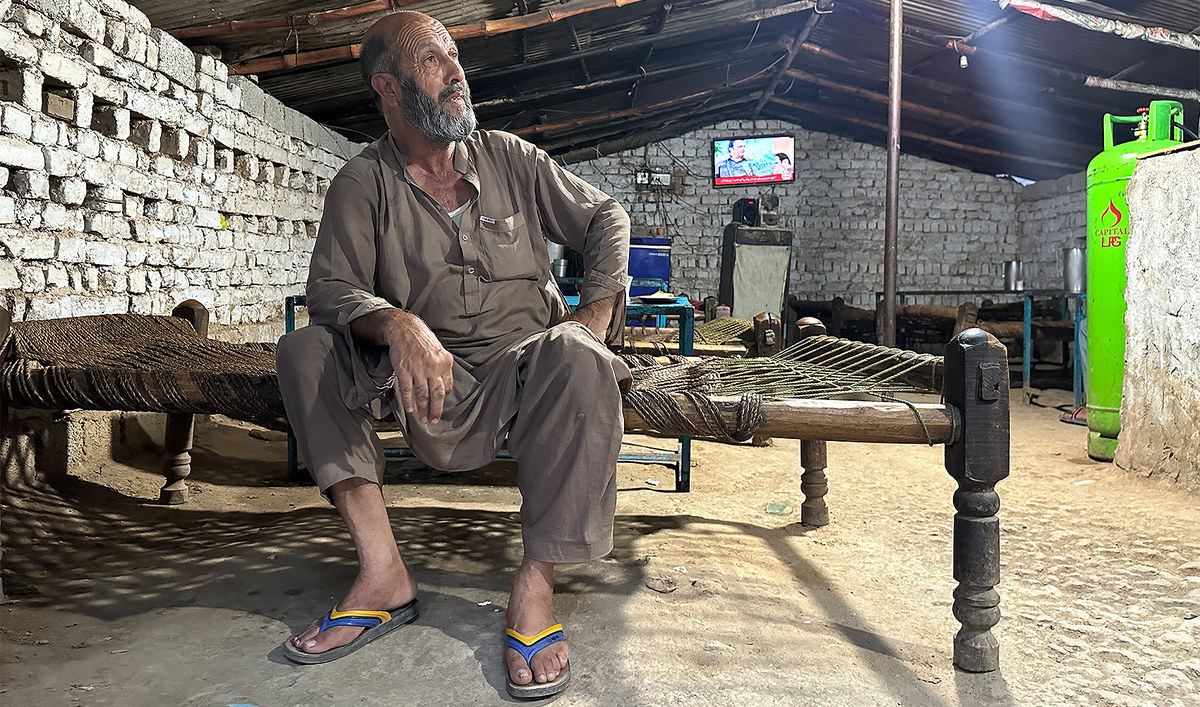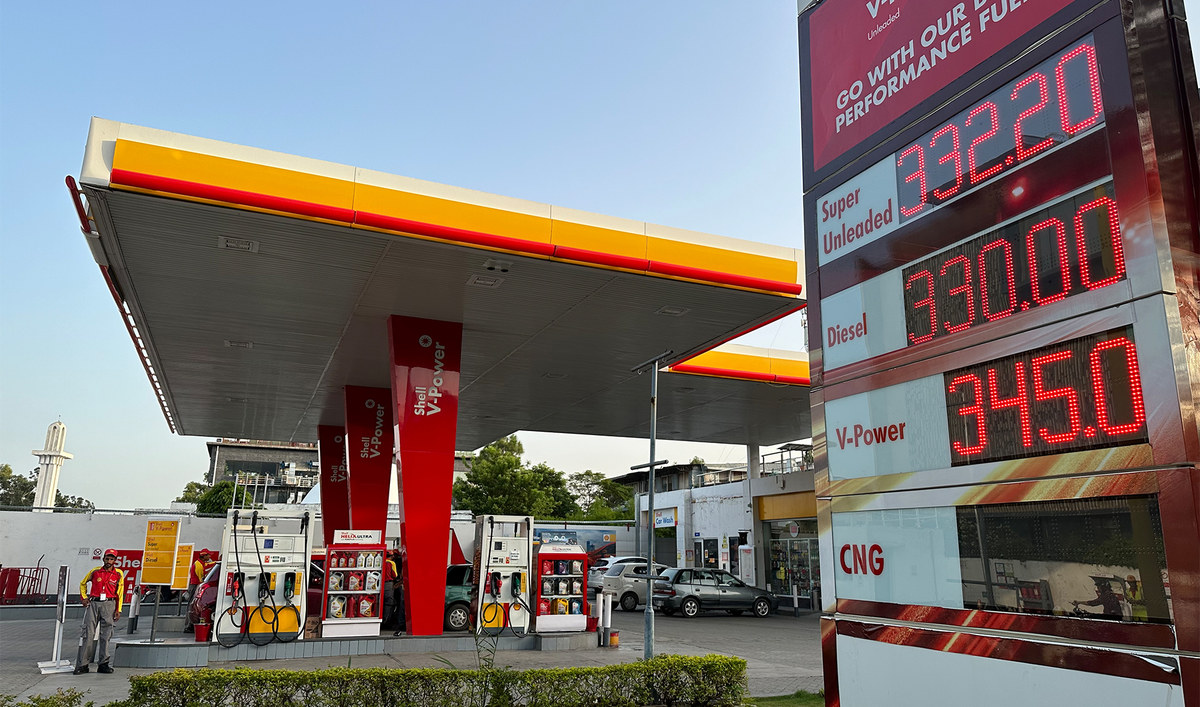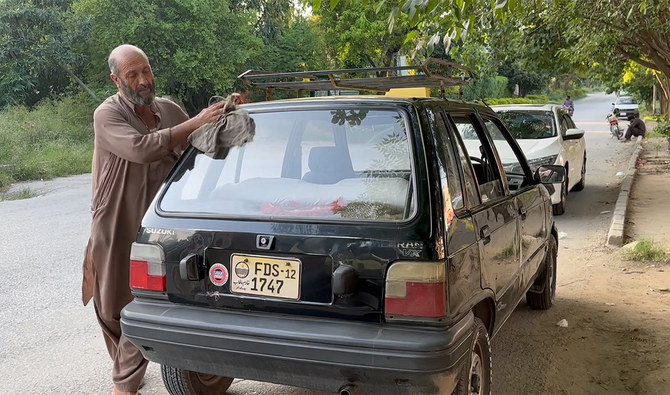ISLAMABAD: Khairullah Khan, a 50-year-old taxi driver, remembers a time when he could fill his tank with cheap fuel to drive passengers across the Pakistani capital and take home enough money for food, drink and a decent life for his wife and nine children.
Today, spiraling fuel costs and soaring inflation mean he is left at the end of a busy day with less than a few dollars in earnings.
Last week, parked under a tree near a bustling market in Islamabad, Khan waited for customers but said rising fuel costs had driven most of his clients away.
On Sept. 15, Pakistan announced a record rise in petrol and diesel prices — by 26.02 rupees to 331.38 rupees a liter and by 17.34 rupees to 329.18 rupees a liter, respectively — the second big increase in two weeks for the South Asian nation already struggling with high inflation. A $3 billion loan program, approved by the International Monetary Fund (IMF) in July, averted a sovereign debt default in Pakistan but reforms linked to the bailout have fueled annual inflation running at 27.4 percent.
“We have no work, no income, we are ready to kill ourselves,” Khan, who has been plying the streets of Islamabad since 1991, told Arab News. “It has become very difficult to make ends meet now.”

Khairullah Khan, a 50-year-old taxi driver, is pictured sitting in a roadside cafe in Islamabad, Pakistan on September 19, 2023. (AN photo)
Khan complained that customers were now unwilling to pay the high cost of rides that drivers were forced to charge due to new fuel prices.
“When we raise the fares, people argue that they are not responsible for the fuel prices so why should they pay higher costs,” the cabbie said.
Yellow cab driver Talib Hussain, 47, said now even “middle class people” could not afford taxi rides.
“I have not had any customers since morning, neither have any other cabbies standing here,” he said, pointing to a line of cabs behind his car.
Hussain said he used to make almost Rs25,000 ($85.6) per month last year but now took home barely Rs 8-10,000 ($27-34) monthly.
“If we [family] were eating thrice a day [last year], now we can only afford to eat one meal per day. Earlier my kids used to go to school by a van but now they have to walk to school every day. I have enrolled them in a government school because I could not afford to pay for private schools.”

An employee waits for customers at a fuel station in Islamabad, Pakistan on September 25, 2023. (AN photo)
Many drivers who work with ride hailing apps like Uber, Careem, Bykea and InDrive reported a 50-60 percent decrease in average income compared to last year.
“The way fuel prices have increased, the rates per kilometer have not been increased the same way [by the ride-hailing company] which has resulted in a 50-60 percent drop in our incomes,” part time cabbie Naveed Alam said.
“If I was saving Rs 1,000 ($3.42) per day from this work last year, now I can barely save Rs600 ($2) … Customers have decreased, and fuel prices have doubled, which has reduced our income manifold.”
An InDrive bike rider who only identified himself by his first name, Usman, said he earned Rs1,000 ($3.42) per ride last year while burning Rs200 ($0.68) on fuel.
“Now for the same job, the fuel costs us around Rs 500-600 ($2),” he said, adding that maintenance costs for his bike had also doubled. “The fuel costs have almost doubled, and inflation has also increased so much, which has made our lives very difficult.”
Many cab drivers said the price hikes were forcing them to seek alternative means of livelihood, an uphil task, or get a second job.
“We toil for over 18 hours a day, yet we are unable to cover our expenses,” said Vilayat Khan, a cab driver in Islamabad who has been associated with the profession for the last 28 years. “But to start any other work we need investment, but we don’t have any money to invest, we don’t even own the cars we are driving.”
Bykea motorcycle driver Haider Ali Bykea said he saw no silver lining in the clouds:
“People like us will be forced to end our lives … what else can we do? I have five kids, how do I feed them? How is a poor man supposed to survive?”












